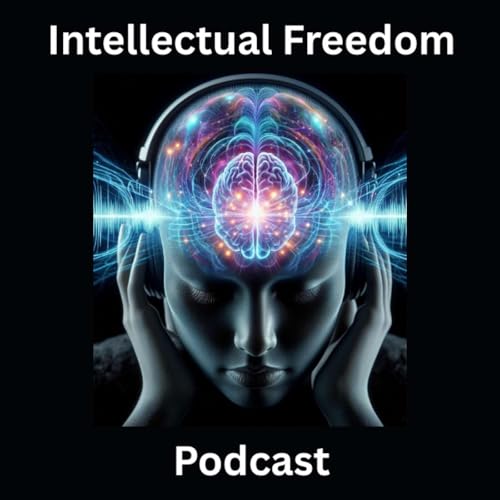
Intellectual Freedom Podcast
Failed to add items
Add to basket failed.
Add to Wish List failed.
Remove from Wish List failed.
Follow podcast failed
Unfollow podcast failed
-
Narrated by:
About this listen
Intellectual freedom is not just a buzzword. It is a fundamental necessity for human civilization and your life's flourishing. It is the essence of the human spirit to question, explore, and seek answers to the most profound questions that confront us every day.
Without intellectual freedom, we are but slaves to the whims of those in power, unable to challenge authority, push boundaries, or pursue truth. In our post-modern world, ignorance and oppression weigh heavy on all of us, stifling creativity, innovation, and progress. The quest for knowledge is not a luxury. It is a basic human need. Only through intellectual freedom can we unlock the full potential of our collective intellect and build a brighter future for all.
This podcast explores topics in culture, philosophy, wisdom literature, and complex problems we all confront in life.
-
 51 mins
51 minsFailed to add items
Sorry, we are unable to add the item because your shopping cart is already at capacity.Add to basket failed.
Please try again laterAdd to Wish List failed.
Please try again laterRemove from Wish List failed.
Please try again laterFollow podcast failed
Unfollow podcast failed
-
 36 mins
36 minsFailed to add items
Sorry, we are unable to add the item because your shopping cart is already at capacity.Add to basket failed.
Please try again laterAdd to Wish List failed.
Please try again laterRemove from Wish List failed.
Please try again laterFollow podcast failed
Unfollow podcast failed
-
 1 hr
1 hrFailed to add items
Sorry, we are unable to add the item because your shopping cart is already at capacity.Add to basket failed.
Please try again laterAdd to Wish List failed.
Please try again laterRemove from Wish List failed.
Please try again laterFollow podcast failed
Unfollow podcast failed


